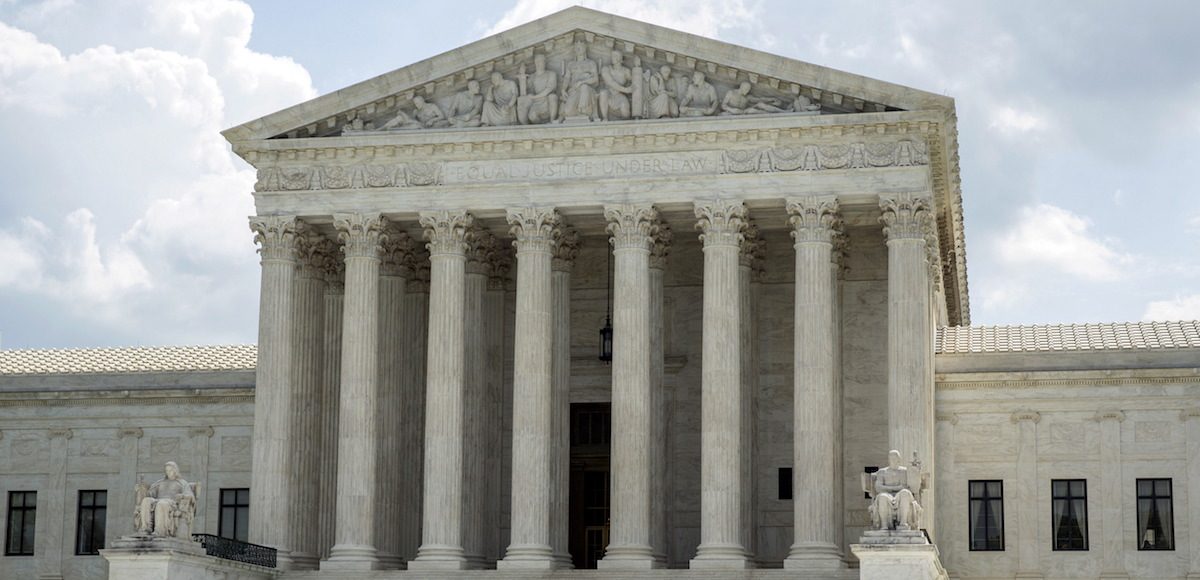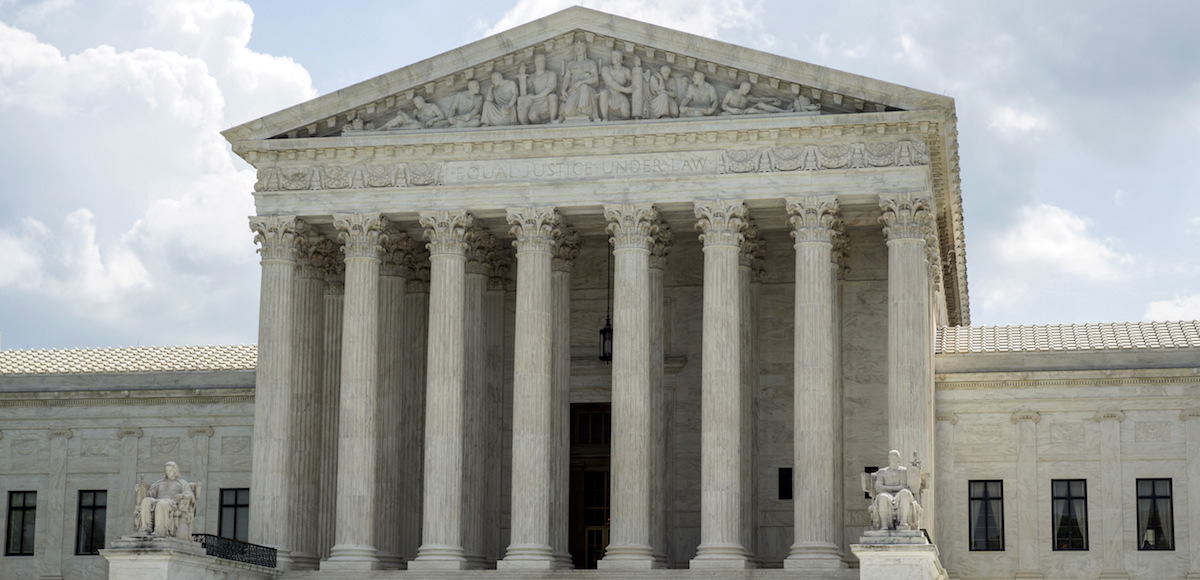

The U.S. Supreme Court stands in Washington, D.C., on May 18, 2015. (Photo: Reuters)
The U.S. Supreme Court granted the Trump Administration’s request to block a lower court ruling allowing them to more strictly enforce a travel on refugees. It’s another victory for the president’s executive oder banning travelers from six Muslim-majority nations identified as hotbeds of terrorism.
The lower court ruling would have nullified the travel ban and permitted up to 24,000 refugees to enter the country before the end of October.
President Trump’s executive order came on the heels of the Department of Homeland Security (DHS) revealing nearly a third of the 1,000 domestic terrorism cases currently being investigated by the Federal Bureau of Investigation (FBI) involve those admitted to the U.S. as refugees.
Officials said some of those 300 came to “infiltrate” the U.S., while others were radicalized once they were in the country. The report represented the first official solid tie between the refugee resettlement program and an increase in domestic terrorism.
President Trump issued a second order after the first was challenged by liberal activists, rewriting it to address the concerns in the liberal court’s rulings.
The “Executive Order Protecting The Nation From Foreign Terrorist Entry Into The United States” cited the president’s authority granted by the U.S. Constitution and the U.S. Congress, specifically the Immigration and Nationality Act (INA) of 1952, to suspend refugee entries for 120 days.
Whenever the President finds that the entry of any aliens or of any class of aliens into the United States would be detrimental to the interests of the United States, he may by proclamation, and for such period as he shall deem necessary, suspend the entry of all aliens or any class of aliens as immigrants or nonimmigrants, or impose on the entry of aliens any restrictions he may deem to be appropriate.
However, unlike the first order, it detailed categories of people eligible to enter the United States for business or medical travel purposes. It also no longer suspended Syrian refugee admissions indefinitely and excluded Iraq. Still, lawyers for the state of Hawaii, the most liberal state in the country, moved for a temporary restraining order on March 15, the day before the new executive order was supposed to take effect.
The Ninth Circuit Court of Appeals, the most liberal and overturned appellate court in the land, along with the Fourth Circuit, the second most liberal court in the land, ruled against the Trump Administration and issued injunctions. In June, the Court reinstated President Trump’s travel ban until oral arguments were heard on October 10, 2017.
That ruling exempted a large swath of refugees and travelers with a “bona fide relationship” to a person or an entity in the U.S. But they did not define those relationships, only saying they could include a close relative, a job offer or admission to a college or university.
The Department of Justice (DOJ) filed a Motion to Clarify and Application for Stay after Hawaii Attorney General Douglas S. Chin sought a broader definition pertaining to those permitted to enter the U.S. However, the Court refused the government’s request to clarify the definition of “close familial relationships.” In not doing so, it leaves the more expansive definition than the government had wanted.
That includes grandparents, grandchildren, brothers-in-law, sisters-in-law, aunts, uncles, nieces, nephews and cousins to a list that already included a parent, spouse, fiance, son, daughter, son-in-law, daughter-in-law or sibling already in the U.S.
Judge Watson, a leftwing appointee made by Barack Obama, said refugees working with resettlement agencies in the U.S. are considered to have a “close” relationship and must be admitted.
The Supreme Court put the expanded definition on hold and said the 9th Circuit Court of Appeals could consider both issues. But the Trump Administration filed a request to block the eventual ruling, which they just did.
The justices are still scheduled to hear arguments on October 10 on the legality of the entire order. The People’s Pundit Daily (PPD Poll) Big Data Poll has repeatedly found majority support for President Trump’s executive order.







